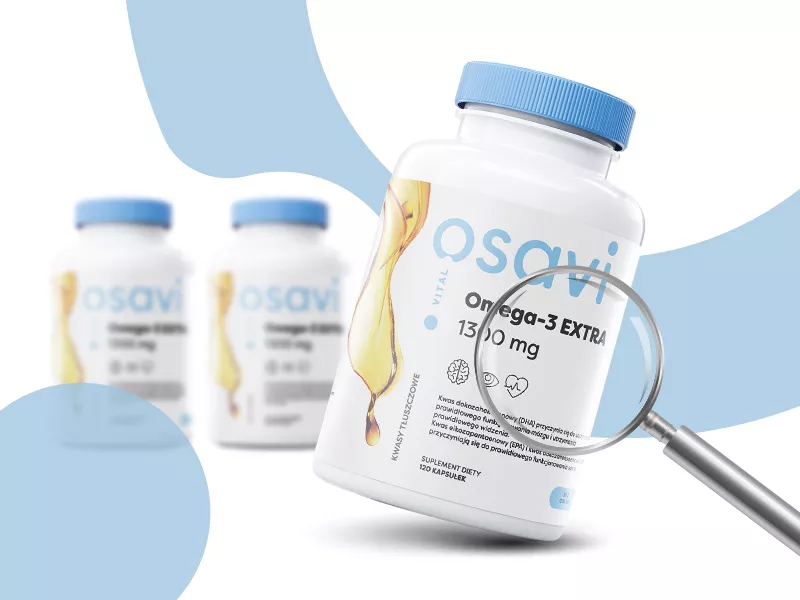
Sodium Butyrate and the Gut Microbiota: A Friend to Your Stomach
What is sodium butyrate and how does it work in the body?
Sodium butyrate is a salt of butyric acid (butanoic acid) – a short-chain fatty acid that is naturally produced in the intestines during the bacterial fermentation of dietary fiber. This process occurs thanks to beneficial bacteria residing in the large intestine, such as Bifidobacterium and Faecalibacterium prausnitzii. Butyrate is the main source of energy for intestinal epithelial cells (enterocytes), making it a key element of gut health. Maintaining optimal levels of butyrate improves gastrointestinal health by supporting colonocyte function, reducing inflammation, maintaining the intestinal barrier, and promoting a healthy microbiome.
The effects of sodium butyrate in the body include:
- Regeneration of intestinal epithelium – butyrate supports the rebuilding of intestinal epithelial cells, which improves the integrity of the intestinal barrier and prevents leaky gut syndrome.
- Anti-inflammatory action – it reduces inflammation in the intestinal mucosa, which is crucial for individuals with inflammatory bowel diseases such as IBS, Crohn's disease, or ulcerative colitis.
- Regulation of the immune system – through its influence on cytokine production and modulation of the immune response.

How does sodium butyrate support a healthy gut microbiome?
A healthy gut microbiome, which is a balanced ecosystem of bacteria residing in our intestines, is essential for maintaining the body's homeostasis. Sodium butyrate supports the microbiota in several ways:
- It stimulates the growth of beneficial bacteria, as it is one of the products of fiber metabolism, meaning its presence indicates a healthy fermentation process. Butyrate-producing bacteria, such as Faecalibacterium prausnitzii, are crucial for maintaining microbiota balance.
- It prevents the dominance of pathogens – butyrate lowers the pH of the intestinal environment, inhibiting the growth of pathogenic bacteria and fungi.
- It supports the production of intestinal mucus – healthy mucus protects the intestinal mucosa from damage and supports the proper functioning of the intestinal barrier, preventing the penetration of toxins into the bloodstream.
- It modulates inflammatory responses – butyrate-producing microbiota is associated with lower levels of inflammation in the intestines and beyond. Butyrate acts as a mediator, reducing the production of pro-inflammatory cytokines.
Due to its effects, sodium butyrate can also support daily care for the gut microbiome, improving the overall condition of the digestive system.
If you want to take care of your digestive health, try Sodium Butyrate SR 960 mg – a medical food in the form of hard capsules. Thanks to microencapsulation technology and sustained release (SR), sodium butyrate is gradually delivered to the body without any unpleasant taste or odor. Our product is free from palm oil, sugar, gluten, lactose, soy, and GMOs, and is suitable for vegetarians and vegans. Take care of your gut and enrich your diet with our product!
Sources:
- Hodgkinson, K., El Abbar, F., Dobranowski, P., Manoogian, J., Butcher, J., Figeys, D., Mack, D., & Stintzi, A. (2023). Butyrate's role in human health and the current progress towards its clinical application to treat gastrointestinal disease. Clinical Nutrition (Edinburgh, Scotland), 42(2), 61–75. https://doi.org/10.1016/j.clnu.2022.10.024
- Lewandowski, K., Kaniewska, M., Karłowicz, K., Rosołowski, M., & Rydzewska, G. (2022). The effectiveness of microencapsulated sodium butyrate at reducing symptoms in patients with irritable bowel syndrome. Gastroenterology Review, 17(1), 28–34. https://doi.org/10.5114/pg.2021.112681
- Banasiewicz, T., Krokowicz, Ł., Stojcev, Z., Kaczmarek, B. F., Kaczmarek, E., Maik, J., Marciniak, R., Krokowicz, P., Walkowiak, J., & Drews, M. (2013). Microencapsulated sodium butyrate reduces the frequency of abdominal pain in patients with irritable bowel syndrome. Colorectal Disease: The Official Journal of the Association of Coloproctology of Great Britain and Ireland, 15(2), 204–209. https://doi.org/10.1111/j.1463-1318.2012.03152.x
- Facchin, S., Vitulo, N., Calgaro, M., Buda, A., Romualdi, C., Pohl, D., Perini, B., Lorenzon, G., Marinelli, C., D'Incà, R., Sturniolo, G. C., & Savarino, E. V. (2020). Microbiota changes induced by microencapsulated sodium butyrate in patients with inflammatory bowel disease. Neurogastroenterology and Motility: The Official Journal of the European Gastrointestinal Motility Society, 32(10), e13914. https://doi.org/10.1111/nmo.13914
- Di Sabatino, A., Morera, R., Ciccocioppo, R., Cazzola, P., Gotti, S., Tinozzi, F. P., Tinozzi, S., & Corazza, G. R. (2005). Oral butyrate for mildly to moderately active Crohn's disease. Alimentary Pharmacology & Therapeutics, 22(9), 789–794. https://doi.org/10.1111/j.1365-2036.2005.02639.x
- Krokowicz, L., Kaczmarek, B. F., Krokowicz, P., Stojcev, Z., Mackiewicz, J., Walkowiak, J., Drews, M., & Banasiewicz, T. (2014). Sodium butyrate and short chain fatty acids in prevention of travellers' diarrhoea: a randomized prospective study. Travel Medicine and Infectious Disease, 12(2), 183–188.
- Banasiewicz, T., Borycka-Kiciak, K., Dobrowolska-Zachwieja, A., Friediger, J., Kiciak, A., Krokowicz, P., Małecka-Panas, E., Pietrzak,




